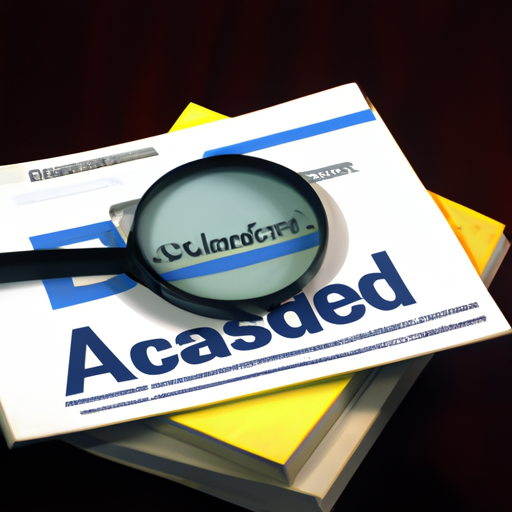In the ever-evolving world of advertising, ensuring compliance with legal standards and regulations is crucial for businesses and their owners. The name “Advertising Compliance Documentation Standards” signifies the importance of documentation in this area of law. This article explores the essential guidelines and requirements that businesses need to adhere to in order to maintain advertising compliance. By discussing key aspects and providing valuable insights, this article aims to equip readers with the knowledge needed to navigate the complex landscape of advertising compliance, ultimately encouraging them to seek the guidance of a knowledgeable lawyer specializing in this field.
Advertising Compliance Documentation Standards
Overview of Advertising Compliance Documentation
Advertising compliance documentation refers to the collection and maintenance of records and policies that demonstrate a company’s adherence to legal and ethical standards in its advertising practices. It plays a vital role in ensuring that businesses comply with advertising laws and regulations and mitigate the risks associated with non-compliance. By implementing robust documentation standards, companies can build trust with customers, protect themselves against legal liabilities, and enhance their reputation.
Purpose of Advertising Compliance Documentation
The purpose of advertising compliance documentation is multi-faceted. Firstly, it ensures that businesses engage in legal and ethical advertising practices. By clearly defining advertising objectives and procedures, this documentation helps companies maintain transparency and accuracy in their campaigns. Secondly, it serves as a risk mitigation tool, protecting businesses against potential legal liabilities and financial consequences resulting from non-compliance. Thirdly, these records demonstrate compliance during regulatory audits, enabling businesses to avoid penalties and legal actions. Lastly, a strong advertising compliance documentation helps companies build trust and reputation with their customers by showing their commitment to responsible advertising.
Legal Framework for Advertising Compliance Documentation
Advertising compliance documentation operates within the framework of various laws and regulations governing advertising practices. These include advertising laws and regulations specific to the jurisdiction in which the business operates, as well as industry-specific regulations that impose additional requirements. Furthermore, compliance documentation must adhere to consumer protection laws, intellectual property laws, and data protection and privacy laws. By understanding and incorporating the legal requirements into their documentation, businesses can ensure their advertising practices align with the law.
Benefits of Implementing Advertising Compliance Documentation
Implementing advertising compliance documentation brings several benefits to businesses. Firstly, it helps maintain legal and ethical standards in advertising, minimizing the risk of legal and financial consequences resulting from non-compliance. By adhering to industry regulations and best practices, businesses can avoid penalties, lawsuits, and damage to their reputation. Secondly, thorough documentation of advertising practices enhances consumer trust and loyalty. Customers are more likely to engage with businesses that are open, transparent, and accountable for their advertising approaches. Additionally, implementing documentation allows businesses to meet regulatory requirements, avoiding non-compliance issues. Lastly, by analyzing and organizing advertising data, businesses can gather insights to improve their strategies, leading to enhanced return on investment (ROI) for their advertising efforts.
Types of Advertising Compliance Documentation
Advertising compliance documentation encompasses various types of records and policies. These include advertising policies and procedures, which outline the company’s guidelines and standards for advertising practices. Also, businesses need to provide clear and accurate disclaimers and disclosures in their advertisements to comply with legal requirements. Consumer consent and authorization forms are essential for obtaining consent to collect and process customer data. Competitor comparison charts and analysis help businesses ensure their comparative advertising is truthful and not misleading. Intellectual property rights documentation protects companies’ trademarks, copyrights, and patents. Data protection and privacy policies are crucial for handling customer data ethically. Media buying agreements and contracts outline the terms and conditions of advertising placements. Ad campaign reports and analytics provide insights into the performance of advertising campaigns. Employee training materials help educate staff on advertising compliance requirements. Lastly, complaint and dispute resolution records document any issues raised by customers and the resolutions implemented.
Creating an Advertising Compliance Documentation Policy
To create an effective advertising compliance documentation policy, businesses should follow several key steps. Firstly, they need to identify and analyze the legal and regulatory requirements that apply to their advertising practices. This analysis helps businesses understand their obligations and develop appropriate procedures to meet them. Secondly, businesses should establish clear advertising objectives that align with their overall marketing strategy. These objectives should take into account legal requirements, consumer protection, and ethical standards. Thirdly, a comprehensive advertising compliance procedure should be developed, outlining the steps and processes to ensure compliance. Fourthly, roles and responsibilities within the organization should be defined to ensure accountability. This includes assigning specific individuals or teams to oversee advertising compliance and monitor documentation. Furthermore, implementing a documentation system is crucial to ensure the organization can effectively collect, organize, and store compliance records. Lastly, regular updates and reviews of the advertising compliance documentation policy are essential to ensure it remains effective and up-to-date.
Key Elements of an Advertising Compliance Documentation Policy
An effective advertising compliance documentation policy should incorporate several key elements. Firstly, it should address both internal and external advertising standards. This includes ensuring that advertising materials are compliant with both company policies and legal requirements. Secondly, clear and accurate representations of products or services should be provided, avoiding exaggeration or misleading claims. Thirdly, the policy should outline the requirements for disclosing pricing and terms, ensuring transparency and fairness in advertising. Fourthly, businesses should adhere to guidelines for using testimonials and endorsements, avoiding false or deceptive representations. Compliance with intellectual property laws is also essential to protect the rights of others. Furthermore, businesses should prioritize transparency in data collection and usage, protecting user privacy and complying with data protection and privacy laws. The policy should also establish mechanisms for monitoring and reporting any potential compliance issues. Lastly, enforcement measures and consequences for non-compliance should be clearly defined to ensure adherence to the policy.
Responsibilities of Employees in Maintaining Advertising Compliance Documentation
Employees play a vital role in maintaining advertising compliance documentation within an organization. Firstly, they should understand the regulatory requirements applicable to advertising practices and familiarize themselves with the company’s advertising compliance policies. Secondly, employees should consistently adhere to the policies and procedures outlined in the advertising compliance documentation. When in doubt, seeking legal guidance is crucial to ensure compliance. Timely and accurate record keeping is essential, as it provides evidence of compliance and supports the organization during audits or investigations. Lastly, employees should cooperate fully with audits and investigations, providing requested documentation and information to demonstrate compliance.
Record Keeping Requirements for Advertising Compliance
Record keeping is an integral part of advertising compliance documentation. Businesses should maintain records of their advertising materials, including copies of advertisements, disclaimers, and endorsements used. Additionally, they should retain consumer consent and authorization forms, competitor comparison charts and analysis, intellectual property rights documentation, data protection and privacy policies, and media buying agreements and contracts. Ad campaign reports and analytics, employee training materials, and complaint and dispute resolution records should also be documented and maintained. It is essential to establish a record-keeping system that ensures these records are organized, easily retrievable, and securely stored.
Review and Audit of Advertising Compliance Documentation
Regular review and audit of advertising compliance documentation is crucial to ensure its effectiveness and accuracy. The frequency of reviews and audits may vary depending on the nature of the business, changes in regulations, and the organization’s risk tolerance. However, businesses should aim to conduct reviews at least annually, or whenever significant changes occur in advertising practices or legal requirements. These reviews should assess the compliance documentation for completeness, accuracy, and alignment with current regulations and industry standards. Internal or external audits can provide an independent assessment of compliance and identify any areas of improvement. By regularly reviewing and auditing their advertising compliance documentation, businesses can stay ahead of compliance issues and make necessary adjustments to maintain legal and ethical standards.
FAQs
What is the purpose of advertising compliance documentation?
Advertising compliance documentation serves the purpose of ensuring that businesses engage in legal and ethical advertising practices, mitigating legal and financial risks, demonstrating compliance during regulatory audits, and building trust and reputation with customers.
What are the consequences of non-compliance with advertising regulations?
Non-compliance with advertising regulations can lead to penalties, lawsuits, damage to a business’s reputation, and financial losses. Additionally, businesses may face regulatory actions, such as fines or restrictions on their advertising activities.
How often should advertising compliance documentation be reviewed and updated?
Advertising compliance documentation should be reviewed at least annually, or whenever significant changes occur in advertising practices or legal requirements. Regular updates are necessary to ensure that the documentation remains current and aligned with applicable regulations.
Are there any industry-specific regulations to consider?
Yes, businesses should consider industry-specific regulations that may impose additional requirements on their advertising practices. These regulations can vary depending on the sector, such as healthcare, finance, or food and beverage.
How can advertising compliance documentation benefit my business?
Advertising compliance documentation can benefit businesses by helping them maintain legal and ethical standards, reducing legal and financial risks, enhancing consumer trust and loyalty, meeting regulatory requirements, and improving advertising strategies and return on investment.









